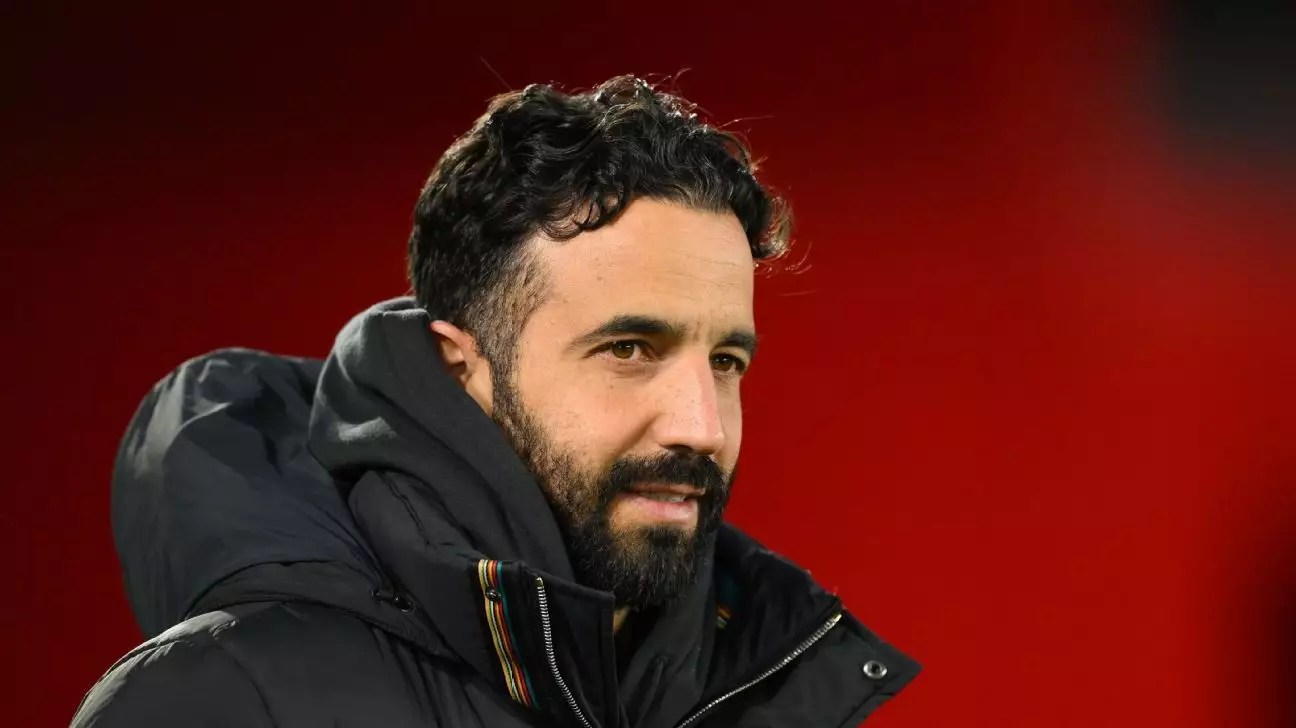As Manchester United approaches a crucial clash with local rivals Manchester City, the narrative surrounding the club is laden with both desperation and hope. Currently sitting thirteenth in the Premier League table, the Red Devils find themselves in a dismal position, trailing leaders Liverpool by a staggering thirty-six points. Their storied legacy, once characterized by dominance and glory, now faces an uphill battle for relevance. The daunting challenge falls to new manager Ruben Amorim, who compels us to confront the harsh reality: the road back to Premier League supremacy is not just long; it is fraught with hurdles.
Amorim’s statement that he would be “crazy” to entertain the notion of clinching the title next season encapsulates the grim state of affairs. Despite historical expectations, the rebuilding project requires a level of patience seldom afforded to institutions accustomed to success. With the looming specter of rivals like Manchester City—who have won six out of the last seven titles—Amorim’s reluctance to embark on overambitious projections highlights a coach who understands the complexities of football management. To truly foster success, he must first instill new standards within his squad while embedding a resilient mentality throughout the club culture.
A Long-Term Vision for Glory
When discussing ambitions for the club, Amorim reveals a targeted campaign to reclaim the title by the 2027-28 season, coinciding with Manchester United’s 150th anniversary. This three-year blueprint speaks volumes about the tremendous gap that exists between United and their contemporaries. Amorim recognizes that championship aspirations cannot simply materialize overnight. The data-driven approach he advocates points toward the necessity of groundwork—nurturing talent through development, tactical evolution, and strategic acquisitions.
While committing to long-term goals, Amorim also acknowledges the urgency of achieving immediate improvement. He is “in a rush” to see results, and there is a palpable desire from fans and stakeholders alike for retribution against years of mediocrity. However, maintaining a balance between expectation and reality is crucial. Amorim’s admission that they will not be “the biggest contender” for several terms obliges supporters to temper their hopes with an understanding of the present landscape. The essence of competitive football lies in adaptability, and in this respect, Amorim’s vision can bring about a rebirth at Old Trafford.
The Challenge of Reinforcement
Despite the clear need for significant squad improvements, Amorim’s statements on recruitment emphasize the necessity for discerning selections. The coach intimates that not all high-profile signings fit the mold of what United requires at this juncture. Enhanced scouting and strategic thinking in choosing “big players” tailored to the club’s specific culture could result in pivotal changes. Furthermore, the unfolding situation surrounding players like Kobbie Mainoo, who is set to return after an extended absence, adds layers of complexity. A young talent’s reintegration into the fold offers hope, but it also underscores the reliance on youth in a rebuilding process fraught with uncertainty.
However, reliance on youth alone isn’t enough. The subsurgence of injuries, as seen with Matthijs de Ligt, who is doubtful for the upcoming match, reminds us that depth is crucial. Amorim’s ability to relinquish the weight of high expectations on emerging players while simultaneously ensuring they are well-equipped to contribute, reflects a management style that aims for sustainability. Nurturing players like Mainoo while integrating seasoned veterans capable of steadfast performances is a balancing act essential to reclaiming both form and stature.
A Path to Enhanced Competitiveness
Looking ahead, the journey for Manchester United under Amorim’s stewardship encapsulates much of what the footballing world reveres: resilience, strategy, and an insatiable drive towards improvement. Amorim may not be able to promise instant gratification, but his acknowledgment of the current context lays a foundation upon which the club can rebuild. Each match will serve as a litmus test for the team’s evolving identity and their hunger for redemption in an era marked by fierce competition.
As the season progresses, Manchester United’s legacy will be reshaped not merely by results but by the character their players exhibit on and off the pitch. Amorim’s leadership will be paramount in molding a squad that can withstand the pressure of expectation while ambitiously challenging the status quo. The desire to reclaim lost glory may be tinged with challenges, but the spirit inherent in Manchester United ensures that the pursuit is as vital as the attainment of titles themselves.


Leave a Reply